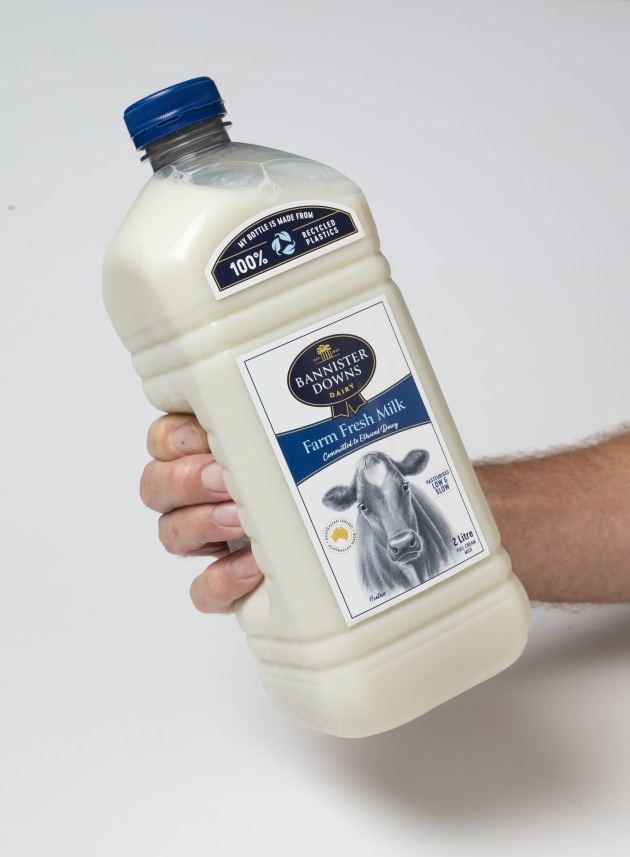WA-based Bannister Downs Dairy has partnered with Visy to adopt 2-litre plastic milk bottles made from 100 per cent recycled plastics and collected from recycling programs.
The bottles were launched at the company’s Christmas party, attended by co-owner, Gina Rinehart, where the team got to see their first view of Farm Fresh and All Lite Milk in the new 2-litre recycled plastic bottle.
Bannister Downs says that with over 80 per cent of fresh milk in Australia sold in 2-litre plastic bottles, there has been a constant demand for a larger packaging format. However, it was important that any solution met the business’ priorities to reduce waste and minimise new plastic.

The 2-litre bottle produced by Visy uses material already in existence and claims to be 100 per cent recycled. Its unique shape with a side grip handle is also attributed to the recycled plastics. Managing director Sue Daubney said that many will find this side grip more user-friendly, particularly anyone with a small impairment to their hands.
“Our new bottle looks quite different on the shelf and it has a very different side grip handle to what people are used to. But to me, this difference reinforces the benefits of this wonderful bottle and that it is produced through an authentic recycling program,” she said.
Rinehart was pleased to share that the supply partnership is with an Australian company, saying it means that Bannister Downs is further supporting local manufacturing and local jobs, and is something that is very critical at this time of economic disruption.
“In this instance, Visy have been able to produce this excellent packaging from their WA-based facility in Forrestfield. I especially like their side handle for usage,” Rinehart said.
For the complete lifecycle benefits, the company says the empty bottle is able to be disposed of in the usual kerbside recycling collection, where it may once again be returned for another lap through the recycling system.

Daubney said, “it will cost a little bit more, because all good things do. There are higher costs in producing the recycled material than a standard bottle, but we value not adding new plastic to the planet and believe that our customers will too.”
Anthony Pratt, Visy executive chairman commented, “We are proud to partner with Bannister Downs Dairy to take used plastic packaging, like water bottles, and turn them into new plastic milk bottles made from 100 per cent recycled content, right here in Australia.”
“We’re in the landfill avoidance business which is good for the environment.”





